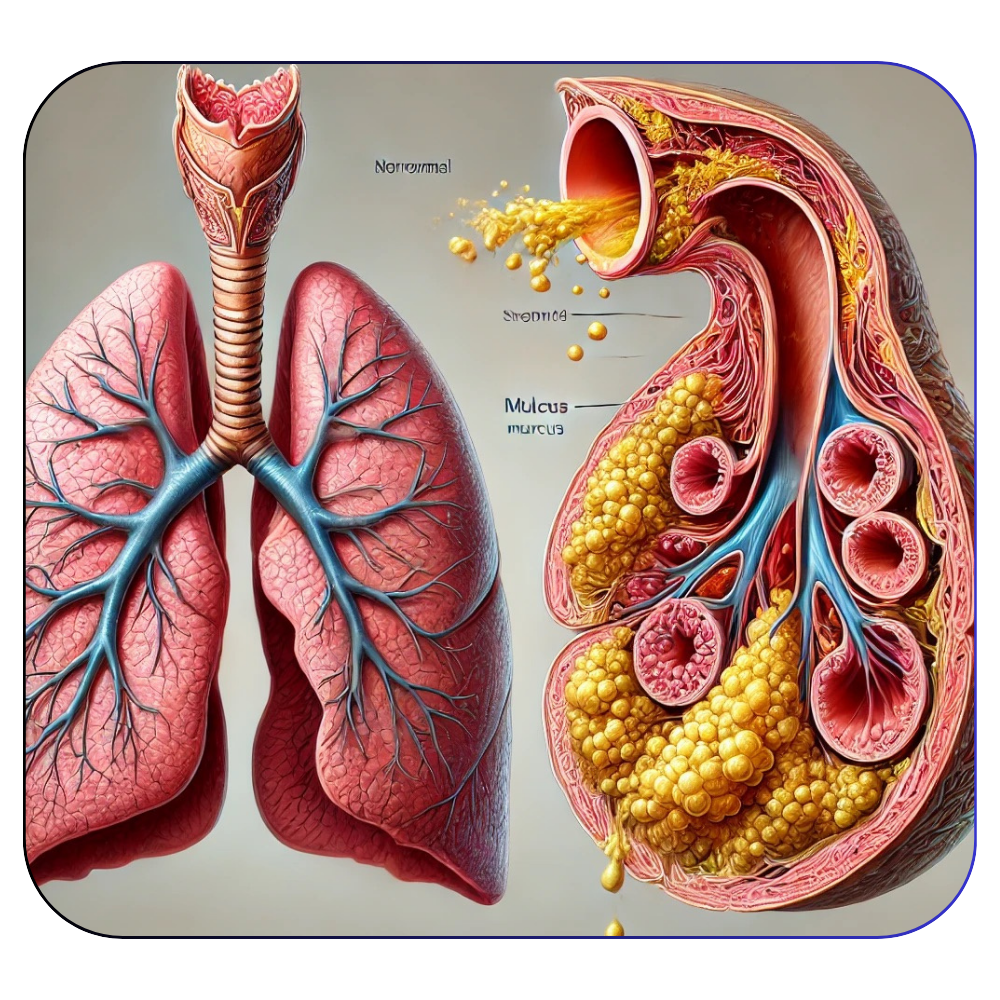Bronchial Asthma is a chronic respiratory condition characterized by inflammation and narrowing of the airways, leading to difficulty in breathing. This condition often presents with symptoms such as wheezing, shortness of breath, chest tightness, and coughing, which can vary in intensity and frequency. Asthma is typically triggered by a variety of factors, including allergens (such as pollen, dust mites, or pet dander), respiratory infections, physical exertion, cold air, and stress. The inflammation in the airways causes them to become overly sensitive and reactive, leading to bronchospasm (tightening of the muscles around the airways), which further restricts airflow. Asthma can affect individuals of all ages, though it often begins in childhood, and its severity can range from mild to life-threatening.

Treatment for Bronchial Asthma is centered around controlling symptoms, preventing flare-ups, and improving overall lung function. This involves a combination of long-term control medications and quick-relief (rescue) inhalers. Long-term control medications, such as inhaled corticosteroids, leukotriene modifiers, and long-acting beta-agonists, help reduce airway inflammation and prevent asthma attacks. Quick-relief inhalers, typically containing short-acting beta-agonists like albuterol, are used to relieve acute symptoms by relaxing the muscles around the airways. For patients with severe asthma, additional treatments like biologic therapies, which target specific molecules involved in the inflammatory process, may be prescribed. Managing asthma also involves identifying and avoiding triggers, regular monitoring of lung function, and creating an asthma action plan with a healthcare provider to manage symptoms effectively.
Box 3233 1810 Kings Way King Street, 5th Avenue, New York
+1-2345-3455-33
contact@mediztheme.co
